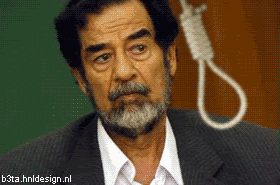DoubleStandarddradnatSelbuoD?
Why no outcry from black Americans on Zimbabwe?
Under Robert Mugabe, the country has descended into starvation and oppression. Yet those here who led rallies against apartheid stay silent.
Cynthia Tucker
edits the opinion section of the Atlanta Journal-Constitution
During the late 20th century, human-rights campaigns led by Western progressives helped liberate two nations in southern Africa from brutal whites-only rule. In 1980, the apartheid regime of Rhodesia gave way to a black-led Zimbabwe. And in 1994, the first multiracial elections in South Africa delivered the presidency to a black man, the longtime antiapartheid activist Nelson Mandela.
In the years since, the two nations have traveled very different paths. South Africa has enjoyed stability, a free press, international investment, an independent judiciary and democratic elections - helped by the graceful exit of Mandela, who retired after one term. While the nation still struggles with poverty, underdevelopment and an AIDS epidemic, it has become a model for multiracial democracy on the African continent.
Zimbabwe, by contrast, has spiraled downward into disaster. Thirty years ago, the nation was stable and productive, a net exporter of food blessed with a small class of educated black professionals ready to form its governmental bureaucracy. Now, Zimbabwe is beset by a thuggish regime that has ushered in starvation, hyper-inflation, rampant unemployment, political oppression and corruption.
Yet the tyranny of Zimbabwe's black president, Robert Mugabe, has met with little reaction from America's black elite. Black politicians, Hollywood celebrities and ordinary Americans loudly protested apartheid - staging demonstrations outside the South African embassy - but Mugabe's despotism has produced only muted criticism. What gives?
Though Mugabe has labored mightily to blame others - including the dwindling population of white Zimbabweans and Western human-rights activists - for his nation's problems, Zimbabwe's voters have finally determined he needs to go. His opponent, Morgan Tsvangirai, led the opening round of voting in March elections.
Now, Mugabe's henchmen have resorted to killing to make certain the runoff election, scheduled for June 27, is anything but free and fair. Tsvangirai has been harassed and detained repeatedly by police. The wives of other opposition leaders have been butchered and burned alive. Mugabe's police even seized food sent to schoolchildren by international donors, giving it only to those who promised to vote for him.
His followers maim and murder their opponents and starve children, but few black Americans notice. Why? Why do we ignore the transgressions of black African tyrants while assailing those of white tyrants?
Former U.N. Ambassador Andrew Young is among those who still manage to see more morality than malice in Mugabe's rule. "Americans cannot be rational about Mugabe," Young said. "We've always miscast Mugabe. He's a fundamentalist Roman Catholic. He doesn't steal."
Young traces Zimbabwe's troubles back more than 30 years, to the failure of the United States and Britain to fund land-reform efforts as generously as promised.
Similarly, Nicole Lee, head of TransAfrica Forum, a Washington-based human-rights group founded by black Americans, points to "a larger context" that includes the failure of Western nations to fund programs to grant farmland to poor black Zimbabweans. She, too, says that Americans shouldn't "demonize" Mugabe.
There's just one problem with that: Mugabe has become a demon.
Here and there, a courageous human-rights activist sees the problem clearly and has the guts to say so. Last week, Desmond Tutu called for Mugabe's resignation. "Mugabe began so well more than 30 years ago. We all had such high hopes," the former Anglican archbishop said. "But his regime has turned into a horrendous nightmare. He should stand down."
U.S. Rep. John Lewis (D., Ga.) said he supported a more forceful response to Mugabe's tyranny. "Just because he's a black leader of an African nation doesn't mean that we can afford to be silent," he said.
It may be that Americans can do little to influence Mugabe's course. If he is willing to starve his people, he is probably immune to public condemnation. But those committed to civil and human rights have a duty to register their disgust for Mugabe's madness, as loudly and as readily as they did for apartheid's brutality.
--------------------------------------------------------------------------------
Contact Cynthia Tucker at cynthia@ajc.com.
Under Robert Mugabe, the country has descended into starvation and oppression. Yet those here who led rallies against apartheid stay silent.
Cynthia Tucker
edits the opinion section of the Atlanta Journal-Constitution
During the late 20th century, human-rights campaigns led by Western progressives helped liberate two nations in southern Africa from brutal whites-only rule. In 1980, the apartheid regime of Rhodesia gave way to a black-led Zimbabwe. And in 1994, the first multiracial elections in South Africa delivered the presidency to a black man, the longtime antiapartheid activist Nelson Mandela.
In the years since, the two nations have traveled very different paths. South Africa has enjoyed stability, a free press, international investment, an independent judiciary and democratic elections - helped by the graceful exit of Mandela, who retired after one term. While the nation still struggles with poverty, underdevelopment and an AIDS epidemic, it has become a model for multiracial democracy on the African continent.
Zimbabwe, by contrast, has spiraled downward into disaster. Thirty years ago, the nation was stable and productive, a net exporter of food blessed with a small class of educated black professionals ready to form its governmental bureaucracy. Now, Zimbabwe is beset by a thuggish regime that has ushered in starvation, hyper-inflation, rampant unemployment, political oppression and corruption.
Yet the tyranny of Zimbabwe's black president, Robert Mugabe, has met with little reaction from America's black elite. Black politicians, Hollywood celebrities and ordinary Americans loudly protested apartheid - staging demonstrations outside the South African embassy - but Mugabe's despotism has produced only muted criticism. What gives?
Though Mugabe has labored mightily to blame others - including the dwindling population of white Zimbabweans and Western human-rights activists - for his nation's problems, Zimbabwe's voters have finally determined he needs to go. His opponent, Morgan Tsvangirai, led the opening round of voting in March elections.
Now, Mugabe's henchmen have resorted to killing to make certain the runoff election, scheduled for June 27, is anything but free and fair. Tsvangirai has been harassed and detained repeatedly by police. The wives of other opposition leaders have been butchered and burned alive. Mugabe's police even seized food sent to schoolchildren by international donors, giving it only to those who promised to vote for him.
His followers maim and murder their opponents and starve children, but few black Americans notice. Why? Why do we ignore the transgressions of black African tyrants while assailing those of white tyrants?
Former U.N. Ambassador Andrew Young is among those who still manage to see more morality than malice in Mugabe's rule. "Americans cannot be rational about Mugabe," Young said. "We've always miscast Mugabe. He's a fundamentalist Roman Catholic. He doesn't steal."
Young traces Zimbabwe's troubles back more than 30 years, to the failure of the United States and Britain to fund land-reform efforts as generously as promised.
Similarly, Nicole Lee, head of TransAfrica Forum, a Washington-based human-rights group founded by black Americans, points to "a larger context" that includes the failure of Western nations to fund programs to grant farmland to poor black Zimbabweans. She, too, says that Americans shouldn't "demonize" Mugabe.
There's just one problem with that: Mugabe has become a demon.
Here and there, a courageous human-rights activist sees the problem clearly and has the guts to say so. Last week, Desmond Tutu called for Mugabe's resignation. "Mugabe began so well more than 30 years ago. We all had such high hopes," the former Anglican archbishop said. "But his regime has turned into a horrendous nightmare. He should stand down."
U.S. Rep. John Lewis (D., Ga.) said he supported a more forceful response to Mugabe's tyranny. "Just because he's a black leader of an African nation doesn't mean that we can afford to be silent," he said.
It may be that Americans can do little to influence Mugabe's course. If he is willing to starve his people, he is probably immune to public condemnation. But those committed to civil and human rights have a duty to register their disgust for Mugabe's madness, as loudly and as readily as they did for apartheid's brutality.
--------------------------------------------------------------------------------
Contact Cynthia Tucker at cynthia@ajc.com.
Labels: Double Standards, Race


























0 Comments:
Post a Comment
<< Home